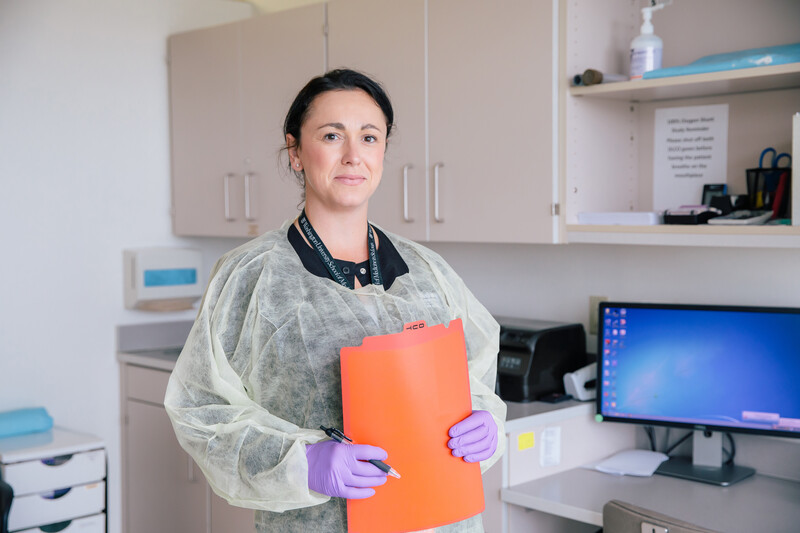Avoiding Germs
Infection prevention is critical to keeping your lungs healthy. Everyone is exposed to germs, such as bacteria and viruses. People with fully functional immune systems are usually able to fight off the germs that cause illness. To prevent your body from rejecting your new lungs, you will take immunosuppressive drugs for the rest of your life that will weaken your immune system. As a result, you will be more vulnerable to infection and will need to make infection control methods part of your lifestyle. Some ways to reduce your chances of becoming ill are:
- Washing your hands or using alcohol-based hand sanitizer often.
- Avoiding non-emergency dental procedures, such as tooth removal.
- Avoiding people who have recently had live vaccines, such as those who received nasal flu vaccine or oral polio vaccines.
- Avoiding people who are sick.
- Refraining from sharing straws, eating utensils, razors, towels, or anything else that comes into contact with someone else's mouth, nose, or private parts.
- Avoiding any spoiled or unpasteurized foods.
- Washing fruits and vegetables thoroughly.
In addition to making these lifestyle changes, you will take medication to prevent bacterial, viral, and fungal infections. Check to make sure these medications are covered by insurance.
Cross-Infection Is Still a Risk
People with cystic fibrosis who have undergone a lung transplant still can get and spread dangerous germs to others with CF because germs that were in the old lungs can remain in the upper respiratory system and sinuses. Because of the risk of cross-infection, after transplantation, people with CF should take the same precautions they took before lung transplantation, such as washing hands with soap and water or using an alcohol-based hand sanitizer, getting a flu vaccination each year, and avoiding contact with other people with CF.
Managing Your Health as Your Life Changes
After your transplant and recovery, you may experience changes in your life, such as moving for a new job or a new living situation. Working with a transplant and CF team will remain important for managing your health — no matter where life takes you. Learn about transplant centers across the country, including the one you may be referred to by your CF care team. Learn about a care center.
Managing Rejection
Your body may try to reject your new lungs at any point. You will take immunosuppressive drugs for the rest of your life to reduce the chances of this happening.
Every drug has possible side effects. Ask your transplant team about the specific side effects you may experience.
Immunosuppressive drugs increase your chances of not only contracting infections, but also for developing other diseases. Some diseases that can result from long-term use of immunosuppressants are as follows:
- Cancer, including breast cancer, cervical cancer, colon cancer, skin cancer, and post-transplant lymphoproliferative disease (PTLD).
- Diabetes.
- Cataracts and/or glaucoma.
- Chronic kidney disease.
- High blood pressure.
- Tooth decay.
“On November 29, [Lauren] went to the ER of the hospital where she had been continuously treated for more than a decade, spent 36 hours in the ER before being admitted, and was blindsided with a diagnosis, within a day, of stage four terminal metastatic cancer. She died two-and-a-half weeks later. She never went home. She did not have a bowel blockage. She did not have a chance. When asked how she purportedly went from 0 to 100 on the cancer scale without being diagnosed and while otherwise being treated, one of her transplant-related doctors said, ‘She has been on immunosuppressant drugs for almost 10 years and has little ability to fight cancer.’ I was stunned by his comment.” — Gerry Sweeney, father of an adult child with CF, from the CF Community Blog
If your new lungs start to fail or your body starts to reject your new lungs, your doctor can prescribe medications to treat rejection and prevent further complications. If these treatment options fail, you may be eligible for another lung transplant. If you want to consider this, you will need to go through the evaluation, listing, and waiting processes again.
Possible Lifestyle Changes
The goal of the transplant is to give you a second chance at life. If all goes well, you will be able to breathe more easily. You will have to increase your activity levels gradually after transplant, but with time and hard work, you may be able to participate in social and physical activities that were not an option for you before your transplant.
"Aside from too much weight gain, I need to be conscious of my risk for infection due to my compromised immune system ... I have to avoid raw meat and seafood because of the possibility of cross-contamination. And while sharing food is common across cultures, I stay away from buffets and communal meals." — Jenavese Armstrong, adult with CF, from the CF Community Blog
